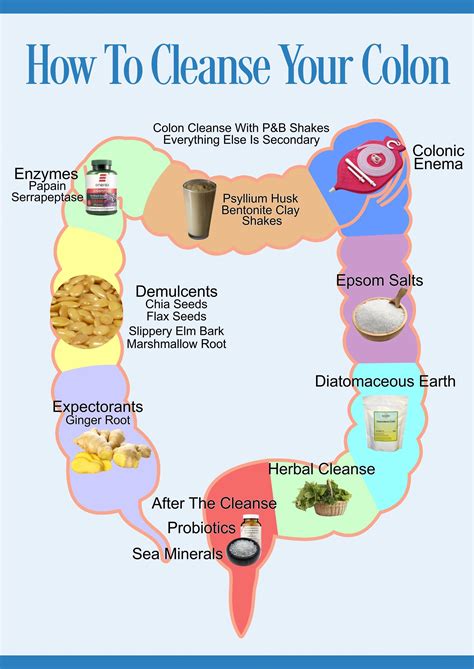Preparing for a Colon Cleanse: Boost Your Energy Levels
A colon cleanse, also known as a colonic, involves flushing out the large intestine to remove built-up waste. While its effectiveness in boosting energy levels is a subject of ongoing debate, many people report feeling more energized and lighter after undergoing a cleanse. This article explores how to best prepare for a colon cleanse to maximize its potential benefits and minimize any discomfort. Crucially, it’s important to consult your doctor before starting any colon cleanse, especially if you have underlying health conditions. Improper preparation or unsuitable cleanses can lead to adverse effects.
What is a Colon Cleanse and Why Prepare?
A colon cleanse aims to remove fecal matter and toxins from the large intestine. Proponents believe this process can lead to improved digestion, increased energy levels, weight loss, and improved overall health. However, scientific evidence supporting these claims is limited.
Preparing for a colon cleanse is crucial for several reasons:
- Minimizes Discomfort: Proper preparation helps prevent cramping, bloating, and other unpleasant side effects.
- Enhances Effectiveness: A clean digestive tract allows for more effective removal of waste materials.
- Supports Overall Wellbeing: Preparing your body sets the stage for a smoother, more beneficial cleanse.
What to Expect During the Preparation Phase
The preparation phase typically involves a few days of dietary and lifestyle changes. This is not a "diet," but rather a process of gently preparing your system.
What to Eat Before a Colon Cleanse?
The best diet before a colon cleanse focuses on easily digestible foods that promote regularity. This typically includes:
- High-fiber foods: Fruits, vegetables (especially leafy greens), and whole grains. Fiber adds bulk to the stool, aiding in elimination.
- Lean protein: Chicken, fish, beans, and lentils provide essential nutrients without overburdening the digestive system.
- Hydration: Drink plenty of water to soften stool and support the cleansing process.
- Probiotics: Yogurt or kefir can help maintain a healthy gut microbiome.
Foods to Avoid Before a Colon Cleanse
Certain foods can interfere with the cleansing process and cause discomfort. Avoid:
- Processed foods: These are often low in fiber and high in unhealthy fats, which can slow down digestion.
- Red meat: This is difficult to digest and can lead to constipation.
- Dairy (for some): Some individuals are lactose intolerant and may experience discomfort during a cleanse.
- Alcohol and caffeine: These can dehydrate you and disrupt bowel movements.
- Sugary drinks: These can promote inflammation.
How Long Should I Prepare for a Colon Cleanse?
The ideal preparation period varies depending on the type of cleanse and individual needs. Generally, a few days of dietary changes is sufficient, but some individuals may benefit from a longer preparation of a week or more. Your healthcare professional can offer personalized advice.
What are Common Side Effects of Colon Cleanses?
While generally considered safe when performed correctly under medical supervision, colon cleanses can cause side effects such as:
- Cramps and bloating: These are common but usually temporary.
- Diarrhea: This is a common side effect, particularly with certain types of cleanses.
- Dehydration: It is crucial to stay well-hydrated throughout the process.
- Electrolyte imbalances: In rare cases, significant electrolyte loss can occur.
What are the Benefits of a Colon Cleanse? (People Also Ask)
Many people wonder about the real benefits. While scientific evidence is limited, anecdotal evidence and some studies suggest potential benefits including improved digestion and regularity. However, it's crucial to approach this with caution and realistic expectations. There's no evidence to support extreme claims of weight loss or detoxification beyond what the body already does naturally.
Is it Safe to Do a Colon Cleanse at Home? (People Also Ask)
Home colon cleanses can be risky if not performed correctly. It's essential to follow instructions carefully and choose a reputable method. Always consult a healthcare professional before attempting a home cleanse.
What are the Different Types of Colon Cleanses? (People Also Ask)
Various methods exist, including commercial kits, herbal remedies, and professional colonics. The suitability of each method depends on individual needs and health conditions. Again, consult a doctor before choosing a method.
How Often Should I Do a Colon Cleanse? (People Also Ask)
There is no standard recommendation for colon cleanse frequency. Regular bowel movements are typically sufficient for maintaining good gut health. Frequent colon cleanses are not recommended and may be harmful.
Conclusion: Preparing for a Successful Cleanse
Preparing for a colon cleanse involves a holistic approach, focusing on dietary adjustments and lifestyle modifications to optimize the process and minimize any potential discomfort. While the benefits of colon cleansing are a subject of ongoing research, careful preparation can help maximize potential positive effects, but always consult your healthcare provider before undertaking any colon cleanse. Remember, a healthy diet, regular exercise, and adequate hydration are crucial for overall well-being and optimal digestive health.

